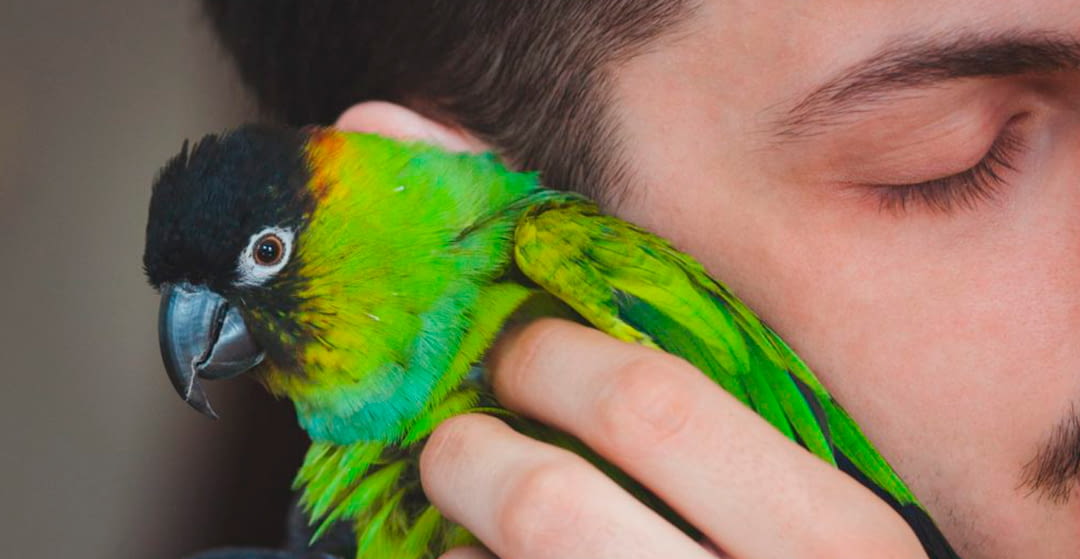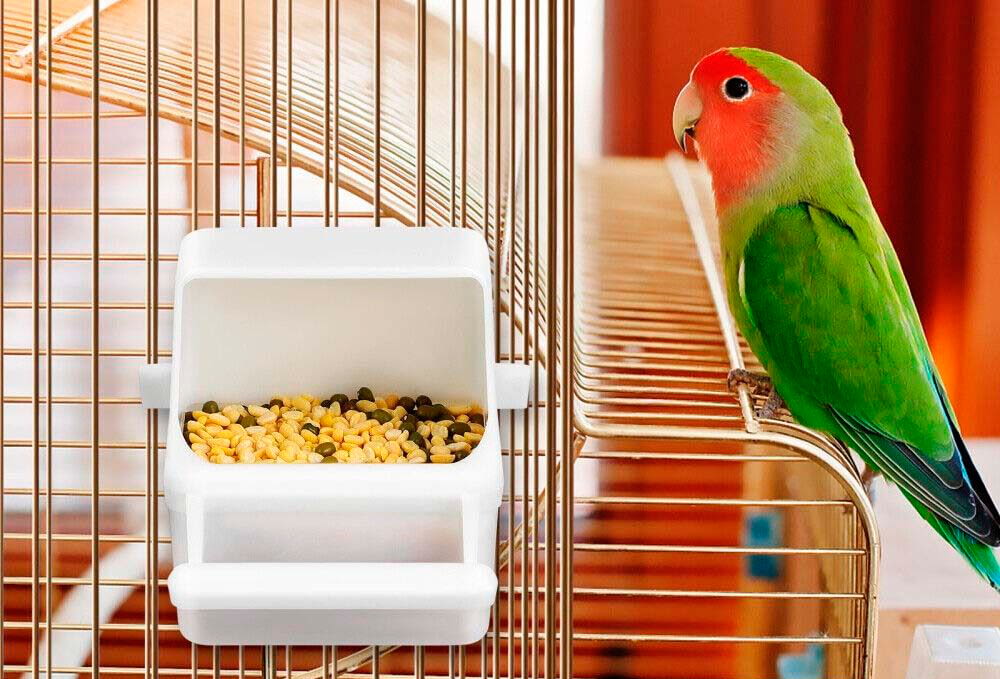
For your customers who share their life with a parakeet, a nymph, a parrot or another type of domestic bird and who obviously care about their health and well-being, in this article, we convey general signs that are indicative of some health problem and which apply to domestic birds of all sizes and colors.
It's always important to pay attention to changes in behavior, appetite, plumage, and more to ensure your little feathered friend gets the attention it deserves.
HOW TO KNOW IF THE BIRD IS SICK
Birds try to hide their illness to avoid being perceived as vulnerable prey by their predators. This strategy makes it difficult to identify with the naked eye whether a bird is sick. However, there are subtle signs that can indicate the presence of a disease.
1. ABNORMAL DEPOSITIONS
The texture and shade of bird feces can be altered due to changes in their diet. However, any variation in color towards yellow, reddish or black tones should be considered abnormal. These changes could signal the presence of internal bleeding or other conditions. It is also important to observe consistency; Stools that are too soft or too hard could be indicative of health problems.
2. SCRUFFY OR MATTED PLUMAGE
The presence of ruffled feathers for a prolonged period may indicate the presence of a respiratory disease. Additionally, this behavior can mask weight loss, which is extremely worrying in domestic birds. If the pet exhibits this behavior for more than a day, it is advisable to consult the veterinarian without delay.
3. NASAL SECRETIONS, REDNESS OR NASAL INFLAMMATION
If some of these symptoms are detected, it is crucial that you take them to the vet immediately. In addition, the cage must be adequately covered to protect them from drafts while they recover.
4. UNUSUAL SOUNDS WHEN BREATHING OR IN VOICE
The presence of bubbling, snoring, whistling, sneezing, loss of voice or changes in vocal tone, along with an increase in respiratory rate or gasping, could indicate the presence of respiratory infections.
5. PRESENCE OF SECRETIONS OR OPACITY IN THE EYES
The appearance of discharge or opacity in the eyes can also indicate the presence of respiratory, nervous or muscular diseases. In such cases, it is crucial to seek specialized veterinary care immediately.

6. DECREASE OR LOSS OF APPETITE
Due to the rapid metabolism of birds, it is essential that they are fed adequately every day. If the bird stops eating and begins to lose weight, it could be experiencing intestinal impaction, a serious disease in birds.
The habitat must always be kept sanitized, and it is essential to have the floor clean every time you feed them to control whether they are consuming the food or discarding it, as well as verifying the consistency of their stools. Loss of appetite is a common symptom of various avian diseases.
7. BREATHE WITH YOUR MOUTH OPEN
Breathing with the beak open while the bird is at rest is an obvious indicator of respiratory distress, signaling an advanced state of this type of condition that demands veterinary attention without delay.
8. DIRTY AND NON-SHINE PLUMAGE
Birds are inherently clean creatures that groom themselves regularly. If the bird's plumage is found to be scruffy or dirty, it could be an indication of illness. It is important to observe the bird for several days and report any changes observed to your trusted veterinarian.
9. TAIL MOVEMENTS
Since birds have a unique anatomy with lungs and air sacs distributed throughout their bodies, tail muscles may help expand the body cavity to facilitate breathing. This up and down movement of the tail that accompanies breathing is an indicator of advanced respiratory distress and requires urgent veterinary attention.
10. ALTERATIONS IN BEHAVIOR
The presence of symptoms such as apathy, lack of vocalization, or changes in voice tone may indicate that the domestic bird is experiencing some type of illness. Carefully observing your usual vocalization pattern helps detect any variations and take timely action.
HOW TO PROCEED IF SOME OF THESE SYMPTOMS ARE DETECTED
If unusual signs are detected in the behavior or appearance of the bird, it is crucial to refrain from administering medications on your own and seek professional guidance immediately by quickly going to a veterinarian specialized in birds.
Only proper diagnosis and treatment by a professional can guarantee the health and well-being of your feathered friend.



